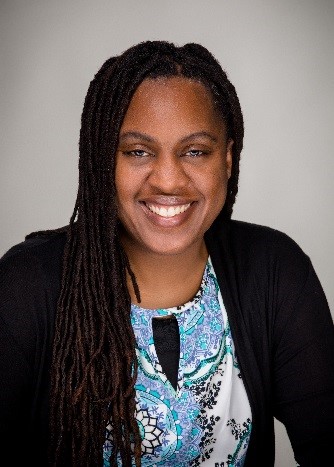
Summer 2019
Physical Activity SIG Member Spotlight: Dr. Melicia Whitt-Glover, Gramercy Research Group
Dori Rosenberg, PhD, MPH, Rachel Millstein, PhD, MHS, & Linda Trinh, PhD; Physical Activity SIG members

Melicia Whitt-Glover, PhD
We recently interviewed physical activity expert, Dr. Whitt-Glover, about her research and how she founded her own research group.
What is your area of research?
Primarily health equity/health disparities. Much of my previous intervention work has focused on engaging low income and/or racial/ethnic minority population in health behavior change interventions to prevent and treat chronic disease (primarily obesity, hypertension, and diabetes). I've recently moved into dissemination and translation work, but I'm still fairly new to the game. Our other line of work is in program evaluation, primarily working with community-based organizations to evaluate their initiatives.
Tell us about Gramercy Research Group
Gramercy Research Group was founded in 2009. We are a public health research firm, specializing in community-based behavioral interventions focused primarily on racial/ethnic minority and low-income communities. Our mission is to combine faith, science and research to develop evidence-based programs that help individuals adopt and sustain healthy lifestyles. We provide services in the areas of program planning, program and research implementation and evaluation, dissemination, and team management and training. We are a woman- and minority-owned small business. Our initial work was primarily with the faith community and the name Gramercy combines the words grace and mercy.
Describe your training and what influenced your decision to found your own research group?
My bachelors and masters degrees are in Exercise Science, both from the University of North Carolina at Chapel Hill. My doctorate is in Epidemiology from the University of South Carolina in Columbia. I completed a postdoctoral fellowship at the University of Pennsylvania in Philadelphia, PA. My first official academic position (after my postdoc) was at Wake Forest University School of Medicine. While completing a K award, I took a course at the University of Michigan during the summer epidemiology sessions. While there I met a woman who owned an independent research firm--the first time I had ever heard of such a thing. We hit it off and I began consulting with her firm. At the same time, I was conducting community-based research through Wake Forest. I felt that I would be more effective at connecting with the local community if I was not affiliated with one of the academic institutions. Using the model for the firm that I was consulting with, I branched out and started Gramercy Research Group in 2009. This past March we celebrated our 10th year in business.
What challenges have you encountered?
We are 100% soft money so obtaining and maintaining funding is always a challenge. It's also hard to identify a good mix of new and experienced staff.
What advice would you give students and trainees who are interested in pursuing a similar career path?
I would encourage you to work in an academic setting or within an existing research and evaluation firm to build a reputation, get exposure to research and evaluation, secure publications and grant funding, and get a feel for how business works. Present at professional meetings and network as much as possible. Most of my work is funded by grants and contracts, and contracts can be greatly impacted by who you know.